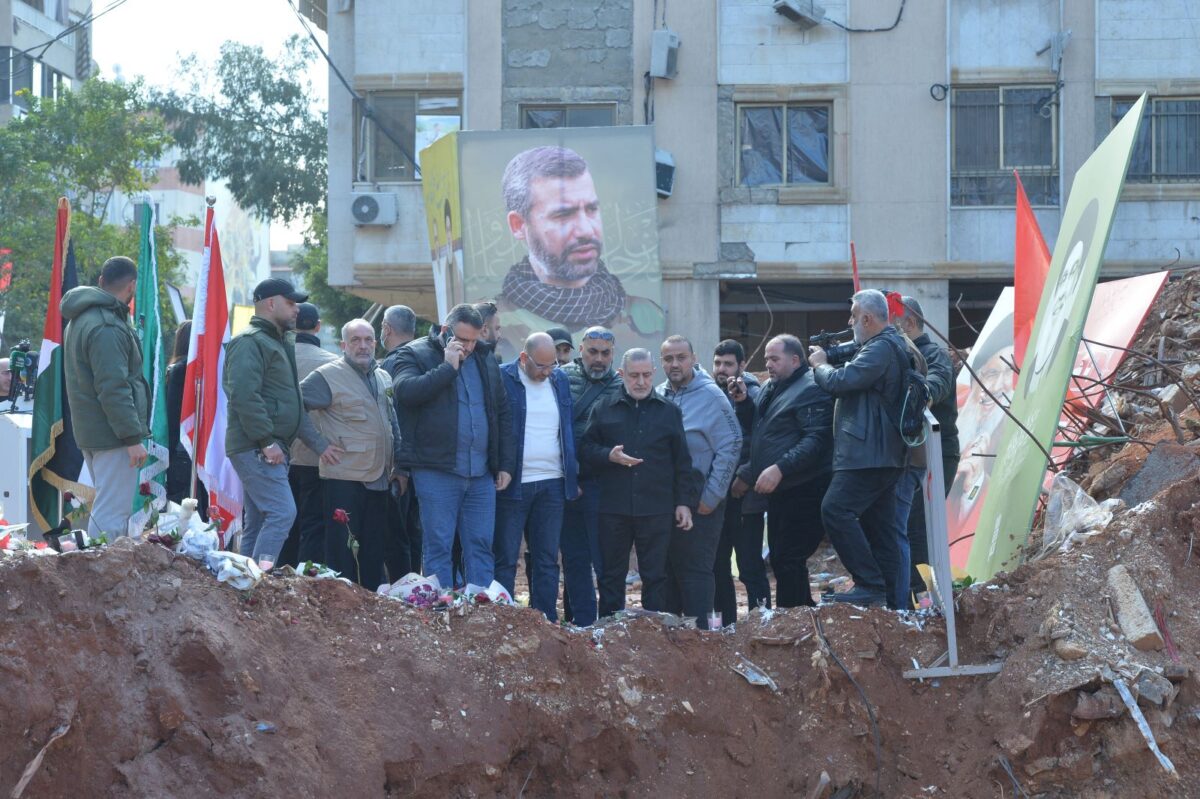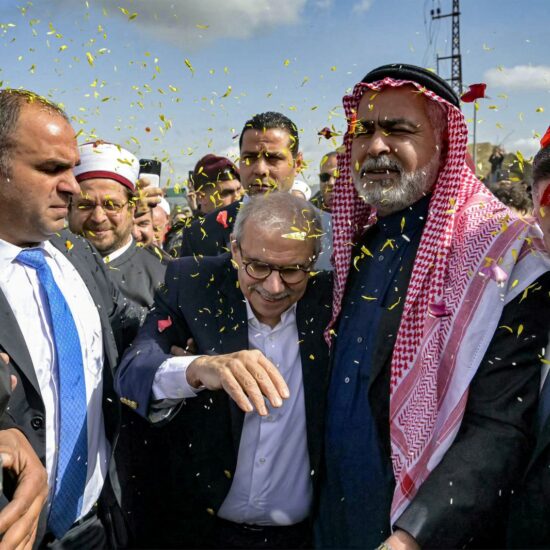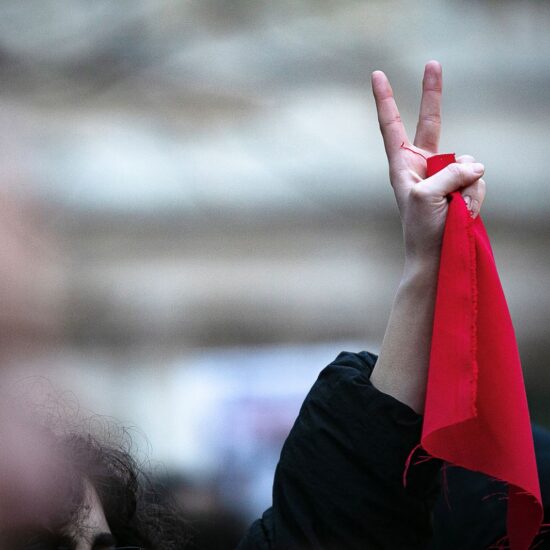
The situation in Lebanon and the broader region remains tense, with ongoing ceasefire violations, diplomatic disputes, and security concerns involving Israel, Hezbollah, Syria, and international actors
With the 60-day period stipulated in the ceasefire agreement between Israel and Hezbollah nearing its end, Israel appears unlikely to withdraw its forces from south Lebanon as required under the agreement. According to Israel’s state-run Public Broadcasting Corporation, the Israeli government plans to inform Washington of its decision, citing alleged non-compliance by the Lebanese Army and Hezbollah’s reported reorganization efforts.
Israel has also stated it will prevent the return of Lebanese residents to border towns near the Blue Line, further straining the fragile truce. Meanwhile, Lebanon’s local newspaper reported that U.S. General Jasper Jeffers, co-chair of the truce monitoring committee, has indicated Israel may seek to extend the ceasefire’s 60-day deadline to 90 days, with a potential further extension until April. Jeffers reportedly told Lebanese Army officials that the extension would depend on Israel achieving its objectives, including neutralizing Hezbollah’s operational capacity.
Hezbollah Secretary-General Naim Qassem responded to Israel’s reported actions with a stern warning, emphasizing that the group’s patience over ceasefire violations “might run out.” In a televised speech, Qassem defended Hezbollah’s restrained response, stating that the group’s leadership decides “when and how to resist.” He cautioned that any retaliatory action would be swift and decisive.
Qassem underscored that the ceasefire agreement, based on United Nations Security Council Resolution 1701, obligates Israel to withdraw south of the Blue Line in phases while requiring the Lebanese Army to deploy in southern Lebanon within the same 60-day period. The resolution, adopted in August 2006, mandates a weapons-free zone between the Blue Line and the Litani River, with exceptions for the Lebanese Army and the United Nations Interim Force in Lebanon (UNIFIL).
As the situation unfolds, the potential for further escalation looms, with both sides trading accusations of violations and the ceasefire agreement’s future hanging in the balance.
In Lebanon
The Army steps in: The Lebanese Army reported a breach of the ceasefire agreement by Israeli forces early on January 5, involving an incursion into the Taybeh-Marjayoun area in South Lebanon. According to the statement, Israeli troops obstructed three local roads by erecting earthen barriers.
In response, a Lebanese Army patrol was deployed to the site to address the violation in coordination with the ceasefire monitoring committee. The patrol successfully removed the barriers and reopened the blocked roads.
The Iranian bag: Caretaker Interior Minister Bassam Mawlawi defended the search of an Iranian plane at Beirut Airport as a routine security measure to protect Lebanon. The Lebanese Foreign Ministry clarified that two diplomatic suitcases onboard contained embassy-related documents and funds, cleared under international diplomatic law. The search followed intelligence reports of a potential cash smuggling attempt to Hezbollah, prompting brief resistance from the Iranian delegation before airport security proceeded.
New rules: Lebanese Interior Minister Bassam Mawlawi confirmed efforts to resolve issues with Syria after Damascus imposed new entry restrictions on Lebanese citizens. Speaking to AFP on Friday, Mawlawi said work was underway to address the situation, which saw Lebanese citizens denied entry at the Syrian border.
Previously, Lebanese travelers could enter Syria with just a passport or ID, without requiring a visa. However, a Lebanese General Security official said they were “surprised” by the border closure from the Syrian side. Reports suggest the new restrictions may be based on “reciprocity,” mirroring Lebanon’s requirements for Syrians, such as residence permits or hotel reservations. A second security source at the Masnaa crossing confirmed that Lebanese citizens now need a residence permit or entry authorization to cross into Syria.
Hockstein is back: Local reports showed that the three days leading up to Thursday’s presidential election session are crucial for its outcome. Discussions are focused on either agreeing on a single candidate or having a competitive race, which has not yet been achieved. US Envoy Amos Hochstein is set to visit Lebanon to address the presidential issue and the situation in the south, as the 60-day ceasefire deadline nears, amid Israeli violations.
A new Saudi delegation is also expected. Before leaving, Saudi diplomat Prince Yazid bin Farhan met with former Prime Ministers Fouad Siniora, Tammam Salam, and MP Bahia Hariri to discuss constitutional governance and the Taif Agreement.
A clear no: Wafic Safa, a senior Hezbollah official, stated that Sayyed Nasrallah’s legacy lives on through the group’s fighters and supporters, making Hezbollah stronger than ever. He highlighted Hezbollah’s readiness to respond to any aggression and mentioned that Israel’s ground invasion had failed. Safa also noted that Speaker Nabih Berri will address Israeli violations with US mediator Amos Hochstein. Regarding the presidential election, Safa clarified that Hezbollah does not oppose Army Commander Joseph Aoun but rejects Samir Geagea due to his divisive agenda.
In The Region
No handshake: German Foreign Minister Annalena Baerbock addressed the controversy over her handshake snub during a visit to Damascus, led by Ahmad al-Sharaa’s new Syrian administration. Baerbock clarified that she anticipated the lack of handshakes, noting, “It was clear to me there wouldn’t be a normal handshake here,” and added that her French counterpart, Jean-Noël Barrot, also refrained from extending his hand.
The incident gained attention after footage showed Syrian officials, including al-Sharaa, greeting Baerbock verbally and with smiles but shaking hands with male members of the delegation, including Barrot. Baerbock, wearing a bulletproof vest upon arrival, highlighted that she and Barrot stressed to Syrian leaders that women’s rights are a fundamental measure of societal freedom.
Yemen strikes: Israel intercepted a missile from Yemen on Sunday, claimed by Houthi rebels targeting a power station near Haifa. This follows similar recent attacks, including one in December that injured 16 in Tel Aviv.
The Iran-backed Houthis, supporting Palestinians, have escalated strikes since a November ceasefire between Israel and Hezbollah. In response, Israel has targeted Houthi sites, including Sanaa’s airport, while U.S. and British forces have also conducted retaliatory strikes.
Iraq announces: Iraqi Prime Minister Muhammad Shiaa Al-Sudani rejected any attempts to link political change in Syria with Iraq’s political system. He emphasized Iraq’s democratic, pluralistic system that ensures peaceful power transitions and reforms within the constitution and law.
Al-Sudani accused Iraq’s enemies of using regional tensions to undermine the country’s unity and reaffirmed Iraq’s neutral stance on Syria’s internal matters. He also stressed that Iraq would resist any external pressure on its economic or security policies, continuing efforts to reform security and political institutions while fostering national unity.
Gaza talks: An Israeli delegation is set to arrive in Doha, Qatar, on Friday to continue negotiations on a hostage release and ceasefire deal for Gaza. The delegation will include senior officials from the Israel Security Agency, IDF, and Mossad. Hamas has confirmed that indirect talks will also resume in Doha, stressing its commitment to a deal.
Syria initiates: Syria’s new Foreign Minister Asaad Hassan al-Shaibani has urged the United States to lift sanctions on his country during a visit to Qatar, part of a regional tour to seek support after Bashar al-Assad’s fall. After meeting with Qatar’s prime minister on Sunday, al-Shaibani told reporters that US sanctions hinder Syria’s recovery.
“These sanctions are blocking the rapid recovery and development of the Syrian people, who are in need of services and partnerships,” he said, calling for the sanctions to be lifted, as they now affect the people rather than just the Assad regime. Qatar’s Foreign Ministry added that the country’s premier also met with Syria’s Defence Minister Murhaf Abu Qasra, head of intelligence Anas Khattab, and al-Shaibani.
What We Are Reading
Lebanon in 2025: a tough road ahead: Journalist Dana Hourany writes about Lebanon’s ongoing crisis after the 2024 Israel-Lebanon war. Reconstruction is slow, and the economy is in freefall, with political paralysis deepening. Despite a ceasefire, Israeli violations continue, and the upcoming presidential election could determine Lebanon’s future. Experts warn of potential reform but also the risk of further collapse.
The year of cautious optimism: Political psychologist Ramzi Abu Ismail writes about the unexpected changes unfolding in Syria and Lebanon in 2024. The fall of al-Assad’s regime in Syria, though momentous, is just the beginning of a long journey toward rebuilding. In Lebanon, Hezbollah’s internal transformation signals the possibility of change, though the country remains deeply divided. While the region is witnessing rare shifts toward change, the path ahead is fraught with challenges, requiring hard work in rebuilding trust and institutions. Abu Ismail emphasizes cautious optimism, acknowledging that change offers a chance for a better future but doesn’t guarantee success.
BDL mismanagement: Journalist Maan Barazy writes about the growing financial instability in Lebanon, highlighting a recent survey by economists and bankers that reveals a sharp rise in the Lebanese pound’s overnight rates. Despite positive developments, such as news from Syria and the upcoming presidential election, the country’s economic outlook remains bleak. The Lebanese pound’s lack of supply reflects deepening mistrust in the local currency, while efforts by the Central Bank to stabilize the pound have led to prohibitively high borrowing costs. Barazy points to the ongoing struggles with currency circulation and banking imbalances as key factors contributing to Lebanon’s continued financial crisis.








